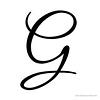Take a photo of a barcode or cover

sophronisba 's review for:
informative
fast-paced
So I am not proud of this but I absolutely devoured this book.
Much of the ground it covers is familiar -- Charles wished he could be Camilla's tampon! Prince Philip loathed Fergie! William and Harry hate the press! -- but Tina Brown does dig up some new nuggets of information. More than that, though, her presentation is refreshingly evenhanded. Her approach reminds me of Jane Bennet in Pride and Prejudice:
"They have both," said she, "been deceived, I dare say, in some way or other, of which we can form no idea. Interested people have perhaps misrepresented each to the other. It is, in short, impossible for us to conjecture the causes or circumstances which may have alienated them, without actual blame on either side."
"Very true, indeed; and now, my dear Jane, what have you got to say on behalf of the interested people who have probably been concerned in the business? Do clear THEM too, or we shall be obliged to think ill of somebody."
Tina Brown did find herself obliged to think ill of Prince Andrew and Princess Michael -- and who can blame her? -- but regards pretty much everyone else with an empathetic eye. Nearly everyone here is doing their best to work with one other even when their goals are at cross-purposes.
Brown takes no stand on whether Kate made Meghan cry, or vice versa, but does suggest that it might be time for Meghan to let it go. (As someone who has both been two weeks postpartum and also planned several elaborate religious ceremonies and receptions, I am here to tell you that I'm sure they both cried, probably multiple times.) She also does not have a guess as to who might have asked about the baby's skin color. (My guess, an unpopular one I'm sure, is that it was Anne, by all accounts the bluntest and least tactful member of the family.) Brown's account won't satisfy partisans in either camp; she is clear that there is plenty of blame to spread around. The Royal Family wasn't sensitive to Meghan's needs, and years of failing to prioritize diversity among their staff came back to haunt them; even when they tried to help they could not summon up enough imaginative empathy to understand what she needed. On the other hand, Meghan naively believed she could transform a stodgy institution headed up by a strong-willed nonagenarian by the force of her personal intelligence and charm; she never really tried to fit in, and didn't make an effort to understand that cultural differences made her American directness sound entitled and rude. More than that, Harry himself had wanted out before he met Meghan; it's easy to imagine that part of Meghan's attraction for him was a sense that she would help him leave. Brown tactfully points out that the couple had to have known that not everything they told Oprah was strictly true, and that their exit, however inevitable, could have been managed more effectively if they hadn't leaked it before talking to the Queen. But she also points out that the Queen -- so preternaturally capable of separating her affection for her family members from her appraisal of their job performance that Brown compares her to Logan Roy -- was never going to give them what they wanted.
Brown is interesting on all of the royal women in general: the rare journalist who writes about them without portraying them as helpless victims of an evil system or calculating, mean-girl snobs. One thing I liked about her approach is that every woman in this book has agency; none of them are mere victims, and none of them are pure villains, either. Of Diana, she says this: "I don’t subscribe to the now pervasive narrative that Diana was a vulnerable victim of media manipulation, a mere marionette tossed about by malign forces beyond her control. While strongly sympathetic to her sons’ pain, I find it offensive to present the canny, resourceful Diana as a woman of no agency, as either a foolish, duped child or the hapless casualty of malevolent muckrakers." She praises Camilla's resilience and self-confidence; twenty years of being trashed in the tabloids would have crushed a lesser woman's spirit. Sophie Wessex, too, is portrayed as picking herself up and dusting herself off after falling on her face a few times. And Brown spills a lot of ink on Kate and Carole Middleton, whom she admires for determining what they wanted and finding a way to get it -- in this case, the crown. Yes, no matter what her friends say, Brown argues, Kate certainly seems to have made a lot of life choices based on getting the future King of England to fall in love with her -- but what of it? Being a royal duchess is a job, a fairly demanding one, and Kate is the rare person who is actually good at it -- why not go for it?
Reading this book felt like a good late-night gossip with a new friend over a glass of red wine. I might regret it in the morning but it was fun while it lasted.